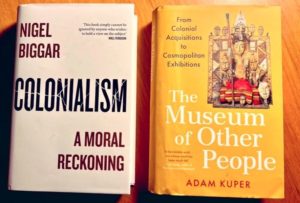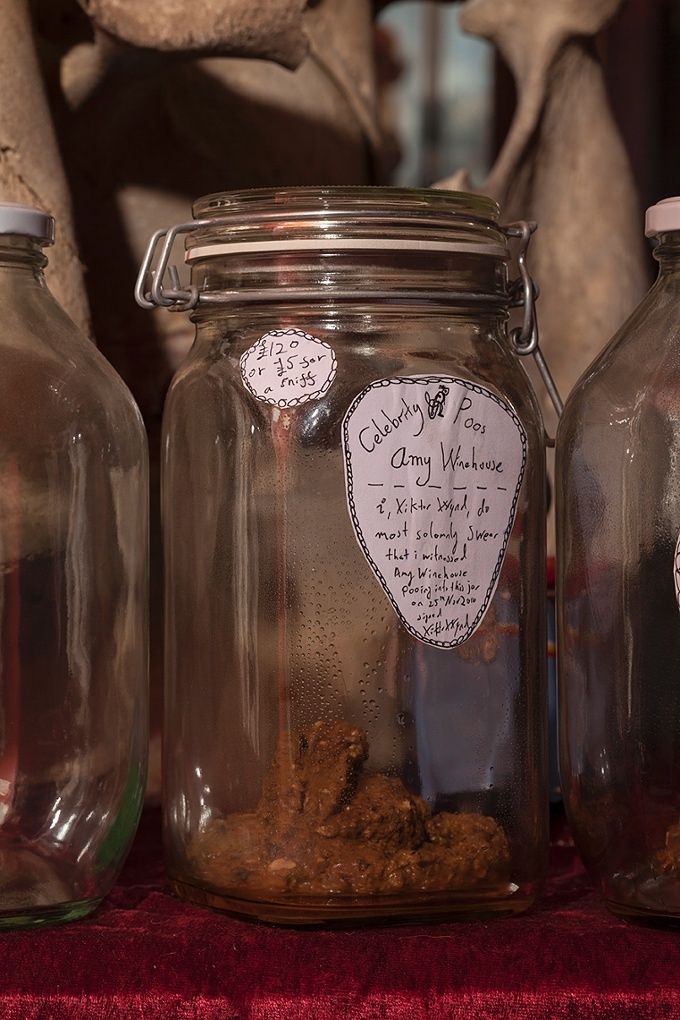
Aren’t we all anti-colonial? Apparently we aren’t all. Without a doubt colonialism has had a huge impact on history around the world. Affecting customs, norms, values, and beliefs of different cultures and communities; some argue that all impact was negative. However, it seems that a new notion of anti anti-colonialism is coming to life. Reverend Nigel Biggar and Adam Kuper have expressed their position regarding British brutal colonialism in their new books. In recent years we have witnessed backlash for removal of racist monuments, restoring stolen artifacts looted under colonialism. This pushback has now entered public discussion, upsetting many communities around the world.
Why would these books interrupt and upset communities around the world? Colonialism is “the policy or practice of acquiring full or partial political control over another country, occupying it with settlers, and exploiting it economically.” Britain took this and used their power to violently enforce policies and control over other countries and their people. This didn’t only affect one group of people, but multiple. Reverend Biggar doesn’t argue that some aspects of colonialism may have been beneficial for society, like we are used to hearing; instead he suggests an approach of pride and admiration. Biggar explains that British people have no reason to feel guilty for what their ancestors have done, for history cannot be changed. Biggar argues that aspects of colonialism were normal and its relationship to racism were common at the time, not really true. He simplifies the effects and brutality that colonialism truly had on minorities around the world. Just to state a few examples, Biggar claims that the British involvement in the transatlantic slave trade existed at different times and places so it wasn’t anything uncommon. In addition, colonial genocides were just “an emotive and misguided framing, since such incidents were ‘far more tragedy than atrocity.” How do you think these comments make people with ancestry, that experienced the violence of colonialism, feel?
Adam Kuper wrote his book focusing on American and European museums and our understanding of them, via an anti anti-colonialists interpretation. Kuper highly critiques the “cosmopolitan museum” and is truly bothered by the relationship between art history and museums. He constantly blames art historians for censoring the living traditions of anthropology curation. In reality Kuper’s position stems from the removal of a controversial display at Oxford University’s Pitt Rivers Museum, which was titled “The Treatment of Dead Enemies”. Not only was Kuper against the removal of pieces like these, due to the “importance” they held to the people, but also didn’t agree with returning stolen monuments to who and where they belonged. Kuper fails to acknowledge the racist head-hunting societies and the messages that these monuments continue to display if kept instead of removed. I think it is important to deconstruct colonialism and the systematic power dynamic that continues to exist in society. Removing those monuments that constantly remind a group of people of the pain that was caused by colonialism doesn’t seem like an impossible task. In addition, returning stolen artifacts to their correct owners isn’t unfeasible either.
Should we worry that Kuper and Biggar have significantly disrupted our anti-colonialism approach and attitude? Is this insignificant and should be ignored? Or has this called others to jump into the anti anti-colonialism movement? It is their right to think about colonialism however they wish, but when does it become an issue that we must interfere with? As a society, I think it is important to stop this because of the damage it causes to people that experienced colonialism in such a brutal, violent, and negative way! What do you think?








One of the main issues in colonialism is that the colonizers often hold the opinion that the people they colonized over are inferior life forms compared to them and I don’t think it’s ethical to think that way. In many historical events, the rich colonized the poor because they needed resources (e.g. labor) from the poor and they have the ability to control (with all those weapons and rich resources). But nobody can choose which side they are born into and we shouldn’t say who is better than who based on violence. Some people might say it’s just a way to protect themselves and what’s wrong with that? I do believe there are ways to protect ourselves without intruding on other cultures or other people’s life.
This concept of anti-anti-colonialism is very shocking to hear about. The atrocities that colonization caused upon colonized lands and peoples is vast and unforgivable. While it might not be productive for decedents of colonizers to continue to carry immense grief for their ancestors’ actions, it is deeply important for them to acknowledge and show remorse for these past actions. As long as colonialism is continued to be taught and discouraged, it will help prevent the same decimation of life in the future. Colonization is still very prevalent, and excusing past colonization simply because “that’s what everyone was doing at the time” not only diminishes the blame and responsibility of these people and their actions in the past, but it also allows colonizers currently to have an excuse to continue abhorrent behavior. When it comes to returning artwork, it is extremely important that stolen pieces are returned to their rightful homes as it shows respect and remorse for the horrible way that these pieces were taken. There is not much that can be done at this point for the actions of colonizers, however, the least that can be done is returning stolen art and religious relics and continuing to condemn colonization.
As someone who values the importance of recognizing and addressing the consequences of colonialism, it is essential to engage with diverse perspectives on this matter. The ideas by Reverend Nigel Biggar and Adam Kuper, challenging the prevailing anti-colonial approach, have ignited discussions and caused unrest among communities worldwide. However, I have come to understand that it is crucial to remain empathetic and mindful of the experiences of those who have directly suffered the violence and oppression of colonialism. Their stories and struggles must be acknowledged and amplified as we strive for social justice and dismantle oppressive systems. By actively engaging with these differing viewpoints, we can work towards a more comprehensive understanding of our shared history and contribute to the healing and empowerment of affected communities.
Reading this article made me question the story behind the shrunked heads Kuper demanded to see in the Pitt Rivers Museum at the University of Oxford. Allsion Meier’s article “Should Museums Display Shrunken Heads?” on JSTOR Daily claims that tsantas are symbolic to the Shuar people, natives in the Upper Amazon region in South America, but were eventually traded for European weapons. Not only did the purchase of these weapons make indigenous warfare more brutal, but European collectors went on to exoticize the item and ignore its importance as a war trophy. The consequences of colonialism are still rooted in the foundations of modern countries that were subject to colonial rule. Colorism, the forceful conversion of natives to Christianity/Catholicism, the looting of artifacts, the corruption of native languages and their replacement with European tongue, and the prevalence of political instability in “third world” countries are often forgotten about when people think that colonialism and slavery remain in the past. This movement against anti-colonialism only diminishes our understanding of historical events, as they are instrumental in guiding our actions moving forward. The goal of anti-colonialism isn’t to make white people feel bad, contrary to Reverand Biggars’ book, but it’s to remind people about how the effects of past events prevail and starting the discussion on how to diminish them.
I strongly disagree with this anti-anti colonialism mentality that is surfacing. As the author said, everyone has the right to their own opinion, and while colonialism did establish powerhouse countries like the US and Canada, there are many countries that were colonized, like the Philippines and India, that are still third-world countries. Also, the suffering the indigenous people of colonized areas endured should not be ignored. These people suffered through mass genocide, rape, kidnapping, and slavery because of colonizers. Multiple aspects of their cultures have been lost because colonizers viewed them as “sinful” or “unholy”. While time has passed since these incidents, how detrimental colonization was to the native populations should never be forgotten or downplayed.
Both books talked about in this article and the points of view that they offer remind me a lot of opinions I’ve seen online of Spanish people saying that the countries colonized by Spain should be thankful and even proud of having been colonized by them since they gifted them their traditions, religion, and language. I would find it surprising that historically colonizer countries would jump to defend colonizer practices if the world was free from colonization altogether, but we are so clearly not free from it that it makes sense that people aren’t ashamed of supporting it. Colonization is still so present everywhere and it still benefits (and oppresses) the same groups of people that I don’t find it surprising that the benefited groups would defend old and modern colonizer practices